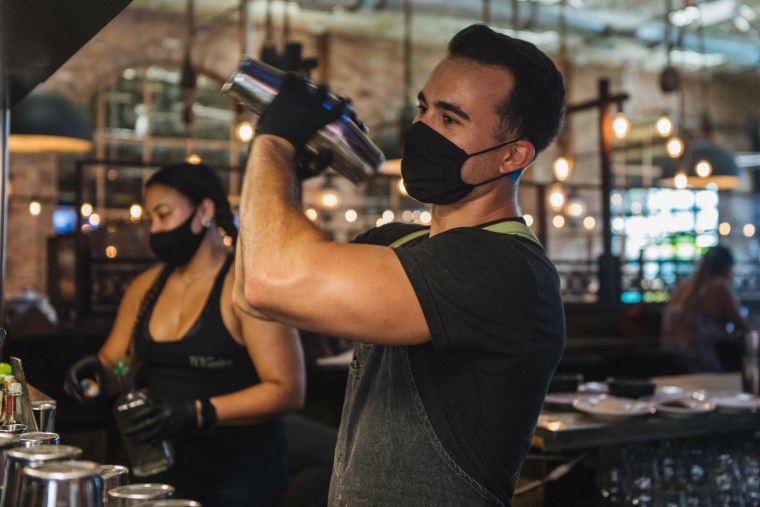The surge of U.S. coronavirus cases that began in June was preceded in May by a large jump in consumer interest in social activities such as dining out and going to bars and gyms, website Yelp reported on Wednesday in an analysis of searches and reviews conducted on its platform.
Justin Norman, Yelp's VP of Data Science, said in states such as Florida and South Carolina, which experienced high growth in coronavirus infections in June, consumer website views and posts of photos and reviews for bars, restaurants and gyms jumped more than 50 percent from the previous month.
In New York and other northeastern states where the virus remained contained, consumer interest in those activities "remained more flat," Yelp said in the latest tabulation of activity on its website, where users discuss and rate local businesses, particularly restaurants.
The analysis was not a rigorous study of the issue. But it suggested the raw correlation was potentially noteworthy — another piece of evidence to suggest that the effort to return to normal life in late May and early June, after two months of national lockdown, may have fueled infections.
The data offers another piece of evidence to suggest that the effort to return to normal life after two months of national lockdown may have fueled infections.
"Correlation and causation are not equivalent," Norman noted. But "increasing consumer interest... is a good general indicator of consumer behavior reverting to the norm and a state being more active economically and socially. This general reversion toward pre-pandemic consumer behavior in the month of May could very plausibly result in a spike in COVID-19 cases in June."
Like many websites that collect user information on a continual basis, Yelp has been using it to gain insight on the coronavirus.
As the economic reopening proceeds fitfully, with some states now restricting activity again as cases rise, what had been a steady decline in the number of businesses shuttered either permanently or temporarily appears to have slowed, the company noted.
The number fell from 177,000 in mid-April to 140,000 in mid-June. As of mid-July, it was 132,500, with a rising share of about 55 percent apparently closed on a permanent basis.
